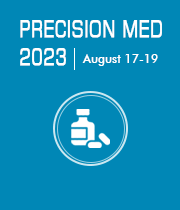Advances in Molecular Diagnostics
The identification of individual biologic molecules is the basis of molecular diagnostics, which is a branch of laboratory medicine. The detection of genetic variations is referred to as molecular diagnostics, and it aims to make detection, diagnosis, subclassification, prognosis, and tracking response to medication easier. Molecular diagnostics is the result of a beneficial collaboration between laboratory medicine, genomics knowledge, and technology in the field of molecular genetics, particularly with recent breakthroughs in molecular genomic technologies. Molecular diagnostics (MDx) has risen to prominence in the clinical diagnostic laboratory, where it has demonstrated benefits in routine detection, fingerprinting, and epidemiologic analysis of pathogenic microbes. The technologies that fuel molecular diagnostics are constantly advancing to help solve some of the obstacles that come with using them, such as increasing their clinical value. The fast-emerging technologies that underpin molecular diagnostics are poised to improve — perhaps even revolutionize — medical diagnosis and treatment. Diagnostic assays are becoming more useful in a wider number of clinical settings as a result of these advancements.
- Molecular diagnostics
- Next generation sequencing
- Microarray
- MALDI-TOF
- COVID-19 detection

Bernd Blobel
University of Regensburg, Germany
Roy Gary Beran
University of New South Wales, Australia
Matthias Schwab
University of Tubingen, Germany
Thomas Webster
Interstellar Therapeutics, United States
Boris Tankhilevich
Magtera, Inc., United States
Isabella Friis Jorgensen
University of Copenhagen, Denmark


Title : The use of anti seizure medication therapeutic blood level determination to personalise the treatment of epileptic seizures especially in patients attending the accident and emergency department
Roy Gary Beran, University of New South Wales, Australia
Title : Personalized and precision medicine (PPM) can be established as a unique healthcare model through biodesign-driven and inspired biotech, translational applications. This approach aims to ensure human healthcare, wellness, and biosafety.
Sergey Suchkov, Institute for Biotech & Global Health of RosBioTech and A.I. Evdokimov MGMSU, Russian Federation
Title : Monitoring folds localization in ultra-thin transition metal dichalcogenides using optical harmonic generation
Ahmed Raza Khan, Australian National University, Australia
Title : A systematic review of regulatory approaches for Direct- To- Consumers (DTC) genetic testing
Kavitha Palaniappan, Duke-NUS Medical School, Singapore
Title : Regulatory framework of in vitro diagnostic and artificial intelligence for precision medicine
Pei Ting Sarah Chou, Regulatory Affairs Professionals Society, Taiwan
Title : Unraveling cancer stem cell signatures in circulating tumor cells of metastatic colorectal cancer: Investigating ALDH1A1 and the repurposing potential of disulfiram via scRNA-seq
Nurul Syakima Ab Mutalib, Universiti Kebangsaan Malaysia, Malaysia